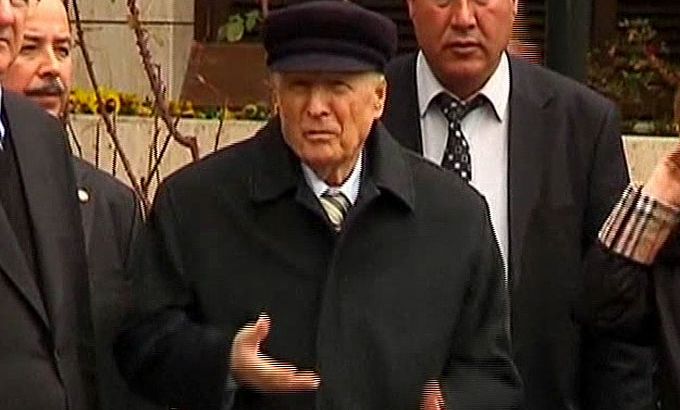
Will 1980 coup trial heal Turkey’s wounds?
We ask if the trial of two of the leaders of one of its bloodiest coups will further strain civilian-military relations.
The two surviving leaders of one of Turkey’s bloodiest coups are standing trial for an alleged crackdown on political freedom, mass arrests and executions.
They symbolised a time when Turkey was dominated by military rule. But now, more than 30 years after the September 12, 1980 coup, what was unimaginable for many is happening.
An Ankara court on Wednesday began hearing the cases against 94-year-old Kenan Evren, a former general who went on to become Turkey’s president, and Tahsin Sahinkaya, a former air force commander who is now 87.
|
“The main issue here is to prove the strength of democracy and to give a kind of lesson to young officers not to … even try that kind of intervention in the democratic process …. They also committed crimes which can be labeled crimes against humanity but unfortunately the prosecutor didn’t go that far and wanted to keep the accusation only at taking the power from the civilian government.“ – Ergun Babahan, a newspaper columnist |
It has been described as an historic moment for Turkey, with Evren, the man who once said he would rather commit suicide than face trial, finally being held to account.
Hundreds of people gathered outside the courthouse on Wednesday, calling for justice. This is the trial they thought they would never see, until a referendum two years ago removed Evren’s immunity.
Elmas Duman, who joined those outside the courthouse, told Al Jazeera’s Gonca Senay: “Our houses were stormed, we were taken into custody without any particular reason, we were subjected to torture. We came here today to be co-plaintiffs.”
But both men are now in poor health and are not expected to appear in court. Their testimonies will, instead, probably be heard by video link.
When the defendants led a military coup in 1980, they dramatically changed Turkey’s social and political landscape. Fifty people were executed, an estimated half a million were arrested, with hundreds dying in jail, and many more disappeared during the three years of military rule that followed the coup. It was Turkey’s third coup in 20 years.
But why is the trial being held now? Will it help to heal Turkey’s past wounds or further strain relations between the country’s military and civilian leaders?
Joining Inside Story with James Bays to discuss this are: Ergun Babahan, a columnist for Turkey’s Star newspaper; Hassan Koni, a professor of International Law at the University of Culture; and Akin Unver; a lecturer in Near Eastern Studies at Princeton University.
| “I find it a little interesting that much of the people who support the court case against the coup right now, basically much of them supported the coup in 1980. And I find this problematic because back then the coup was seen initially as saving the society from violence. But it is actually what happened after the coup – widespread and systematic use of torture as well as killings – that made that 1980 coup notorious. For example, you will see that much of the leadership of today’s Justice and Development Party [were] basically left untouched by the 1980 coup. It basically harmed the left wing groups more than anyone else.”
Akin Unver, a lecturer in Near Eastern Studies |
WHO IS KENAN EVREN?
- The 94-year-old was military chief of staff when he overthrew the government
- He went on to become president from 1982 to 1989
- He has been quoted as saying that he has no regrets about the coup, arguing that it restored order after thousands of people died in street violence between the far-left and far-right
- He is charged, along with his former colleague, of committing crimes against the state and could face life imprisonment
- Even if they are convicted, many expect that they will not go to jail because of their old age
- But the trial is being viewed as an important step in addressing a bitter chapter in Turkey’s history